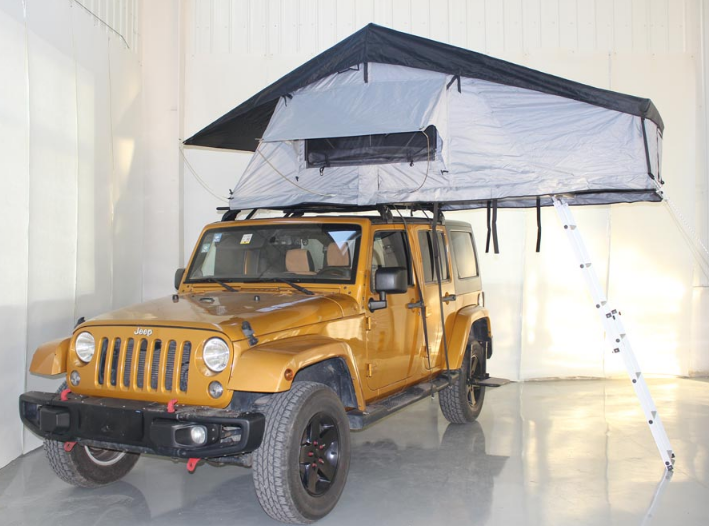Roof top tents, when mounted on vehicles, serve as mobile basecamps, ready to accompany you on your next adventure. Setting up these tents is a breeze, and they offer a combination of durability and comfort for a restful night's sleep. Compatible with various vehicle types, including SUVs, crossovers, wagons, pick-ups, vans, and trailers, they provide versatility for outdoor enthusiasts.
Why Choose a Roof Top Tent?
Roof Top Tents, also known as car top tents or overland tents, are indispensable additions to overlanding equipment, ensuring campers remain protected from unexpected inclement weather and inquisitive wildlife. They offer a safer and more robust alternative to ground tents, providing superior sleeping arrangements, panoramic views of the campground, and ample storage for sleeping bags and other camping essentials. Equipped with their own mattresses, these tents can comfortably accommodate 2-5 people, depending on the tent type. While roof top tents may come with a higher price tag, for most overlanders, they represent a worthwhile investment in terms of the benefits they offer.
What to Consider When Purchasing a Roof Top Tent?
With a plethora of roof top tent options currently on the market, the key lies in selecting the one that suits your needs best. Factors to weigh include the number of occupants, environmental conditions at your camping destination, storage space for bags and gear, pet accommodation, and other relevant considerations.
If you've decided to invest in a roof top tent, it's worthwhile to aim for the best option available. While the process may seem daunting, knowing your specific requirements makes narrowing down your choices more manageable. To assist you, we've compiled some of the most common factors that buyers take into account when acquiring a new roof top tent.
Here are 15 things to look for when purchasing a roof top tent.
Tent’s weight
Living space or mattress size
Budget
Rack and car compatibility
Mounting system and installation procedure
Shipping costs (we have free shipping on most all tents)
Tent material
Accessories included
Ventilation
Design and color
Brand name
Service and warranty
Annex availability
Weather conditions
Tent type: soft-shell, hard-shell, or hybrid
Roof Top Tent Styles
Although the market offers numerous roof top tent styles, they can generally be categorized into three types: soft shell, hard shell, and hybrid. The names themselves provide a glimpse of each type's appearance, but let's explore them in more detail by discussing each one individually.
Soft Shell Roof Top Tent
Soft shell roof top tents are essentially ground tents mounted on the roof of your vehicle. These tents are foldable and utilize either manual or electronically-assisted unfolding procedures to expand the internal support frame, typically composed of aluminum poles, shaping the tent. Typically constructed with waterproof materials such as canvas, nylon, or polyester for the body and overhead shelter, they also feature a durable floor and a mattress for added comfort.
Hard Shell Roof Top Tent
Hard shell roof top tents are collapsible box-like structures comprised of two sturdy bases at the top and bottom. These bases are commonly constructed from materials like fiberglass, aluminum, or solid plastic. When deployed, they serve as the roof and floor of the tent, and when closed, they provide protective storage for the bedding within the tent. Opening them is a simple process involving releasing a few safety hatches and utilizing pressurized gas struts or crank mechanisms. Hard shell tents typically come in two styles: pop-up or wedge.
Pop-up tents elevate the top shell uniformly, creating a rectangular or square form for the tent, while wedge tents, also known as clamshell tents, open up by creating an angled roof that provides one area with more vertical space.
Hybrid Roof Top Tent
Hybrid roof top tents occupy a middle ground between soft shell and hard shell variants. These tents feature a hard shell, waterproof fabric walls, and a fold-out section that provides additional space when set up. Hybrid tents offer ease of setup comparable to soft shell tents, while their takedown speed matches that of hard shell tents.
This particular roof top tent style combines advantages found in both hard and soft shell tents. However, like any product, it comes with a few drawbacks to consider. Explore the pros and cons outlined below.

